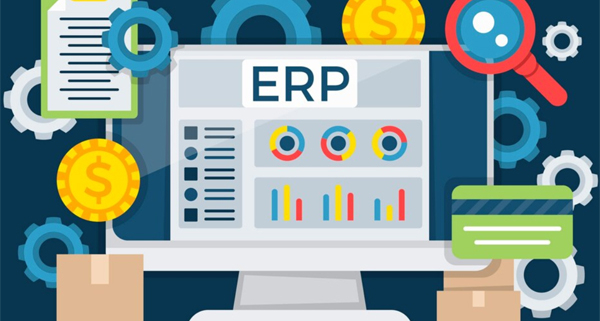Transform Your Business with the Best ERP Solution
Enterprise Resource Planning (ERP) solutions have become indispensable tools for businesses aiming to streamline their operations and enhance productivity. At their core, the best ERP solution integrate various functions across an organization into a unified system, allowing for real-time data sharing and improved decision-making. This integration is crucial in today’s fast-paced business environment, where agility and responsiveness can significantly impact a company’s competitive edge.
By consolidating disparate processes such as finance, human resources, supply chain management, and customer relationship management, ERP solution provide a holistic view of the organization’s performance. Moreover, the importance of ERP solution extends beyond mere operational efficiency. They play a pivotal role in fostering business growth by enabling organizations to scale their operations seamlessly.
As companies expand, they often face challenges related to data silos and inefficient processes. An effective ERP system addresses these challenges by automating routine tasks, reducing manual errors, and providing insights that drive strategic planning. For instance, a manufacturing company can leverage ERP to optimize its inventory management, ensuring that production schedules align with demand forecasts.
Exploring the Key Features of the Best ERP Solution
When evaluating the Best ERP solution, it is essential to consider the key features that distinguish the best systems from the rest.
- One of the most critical features is modularity, which allows businesses to implement specific modules based on their unique needs while retaining the option to add more functionalities as they grow. This flexibility is particularly beneficial for small to medium-sized enterprises (SMEs) that may not require a full suite of features initially but anticipate future expansion.
- Another vital feature is real-time analytics and reporting capabilities. The best ERP solution provide dashboards that offer insights into various business metrics, enabling decision-makers to monitor performance and identify trends swiftly. For example, a retail business can utilize real-time sales data to adjust inventory levels dynamically, ensuring that popular products are always in stock while minimizing overstock of less popular items.
- Additionally, user-friendly interfaces and mobile accessibility are increasingly important in today’s digital landscape, allowing employees to access critical information anytime and anywhere, thus enhancing productivity.
Benefits of Implementing an ERP Solution

1. Enhanced Efficiency and Productivity
One of the primary advantages of the Best ERP solution is the automation of routine tasks and processes, which minimizes the need for manual input. By streamlining business processes such as order processing, production, and inventory management, companies can significantly reduce errors, speed up workflows, and free up employees to focus on more value-added activities. This increase in efficiency ultimately boosts overall productivity and allows businesses to do more with less.
2. Improved Data Accuracy and Availability
An ERP solution centralizes information by integrating data from various departments, ensuring that business leaders and stakeholders have access to the most accurate and up-to-date information. This real-time access to data enhances transparency across the organization, enabling better collaboration and informed decision-making. It also reduces the risk of data silos and discrepancies, which can lead to costly mistakes.
3. Cost Savings
While the initial investment for an ERP system can be significant, the cost savings realized over time are often substantial. By improving operational efficiency and reducing waste, an ERP solution can lower operational costs. Additionally, with process automation and optimized resource management, businesses often see a reduction in labor costs and improved inventory management, leading to further savings.
4. Scalability and Flexibility
As businesses grow and evolve, their needs change. ERP systems are designed to be scalable, allowing companies to easily add new functionalities or modules as required. This scalability ensures that the system remains flexible and capable of supporting business growth without requiring a complete overhaul. Organizations can continue to evolve their processes and workflows while maintaining the integrity of their core systems.
5. Enhanced Reporting and Planning
ERP solutions offer powerful reporting tools that provide insights into every aspect of the business. These tools enable advanced business analytics and reporting, helping leaders to forecast, plan, and strategize effectively. With improved reporting capabilities, businesses can better identify trends, make more accurate predictions, and swiftly respond to market changes.
6. Strengthened Customer Service
With a centralized ERP system, customer information and order data are readily accessible to all relevant teams. This enables faster response times to customer inquiries and more effective management of customer relationships. By having a comprehensive view of customer behavior and preferences, businesses can tailor their services and products to better meet customer needs, thereby enhancing customer satisfaction and loyalty.
7. Regulatory Compliance and Risk Management
ERP systems are designed with compliance in mind. They typically include features to help businesses comply with regulatory requirements and standards across different industries by maintaining detailed and accurate records. This reduces the risk of non-compliance penalties and also helps in managing risks related to data security and fraud.
Choosing the Right ERP Solution Provider
Selecting the right ERP system provider is a critical step in ensuring successful implementation and long-term satisfaction with the system. Businesses should begin by assessing their specific needs and objectives. This involves identifying the key processes that require improvement and determining which features are essential for their operations.
Once these requirements are established, organizations can begin evaluating potential providers based on their experience, reputation, and the range of services offered. It is also advisable to consider the provider’s support and training capabilities. A robust support system is essential for addressing any issues that may arise post-implementation.
Havteq – the best ERP solution provider in chandigarh offer comprehensive training programs can help ensure that employees are well-equipped to utilize the new system effectively. Additionally, seeking out testimonials or case studies from other businesses in Chandigarh that have successfully implemented the provider’s ERP solution can provide valuable insights into their reliability and effectiveness.
Implementing and Integrating ERP Solutions for Seamless Business Operations
The implementation of an ERP is a multifaceted process that requires careful planning and execution. Businesses must first conduct a thorough analysis of their existing processes to identify areas for improvement and determine how the new system will fit into their operations. This phase often involves engaging stakeholders from various departments to gather input and ensure that the system meets the needs of all users.
Once the planning phase is complete, the actual implementation can begin. This typically involves data migration from legacy systems to the new ERP platform, which must be done meticulously to avoid data loss or corruption. Integration with existing software applications is another critical aspect of this phase; seamless integration ensures that all systems communicate effectively, allowing for real-time data sharing across departments.
For example, integrating an ERP system with an e-commerce platform can streamline order processing and inventory management, enhancing overall operational efficiency.
If you are looking to transform your business with the best ERP solution, you may also be interested in reading about the best hotel management software in India. This article discusses how implementing the right software can streamline operations and improve customer satisfaction in the hospitality industry. Check it out here.
FAQs
What is an ERP solution?
An ERP (Enterprise Resource Planning) solution is a software system that integrates and manages a company’s core business processes, often in real-time. It allows for the automation and integration of various functions such as accounting, human resources, inventory management, and customer relationship management.
How can an ERP solution transform a business?
An ERP solution can transform a business by streamlining processes, improving efficiency, providing real-time data for better decision-making, enhancing collaboration across departments, and ultimately increasing productivity and profitability.
What are the key features of the best ERP solution?
The best ERP solution should have features such as comprehensive functionality to cover all aspects of the business, scalability to accommodate growth, flexibility to adapt to changing business needs, ease of integration with other systems, and robust reporting and analytics capabilities.
How can businesses choose the best ERP solution for their needs?
Businesses can choose the best ERP solution for their needs by conducting a thorough needs assessment, evaluating different vendors and their offerings, considering factors such as cost, scalability, industry-specific functionality, and support services, and seeking input from key stakeholders within the organization.
What are the potential challenges of implementing an ERP solution?
Potential challenges of implementing an ERP solution include resistance to change from employees, data migration issues, customization complexities, and the need for extensive training and support. However, with proper planning and execution, these challenges can be overcome.




